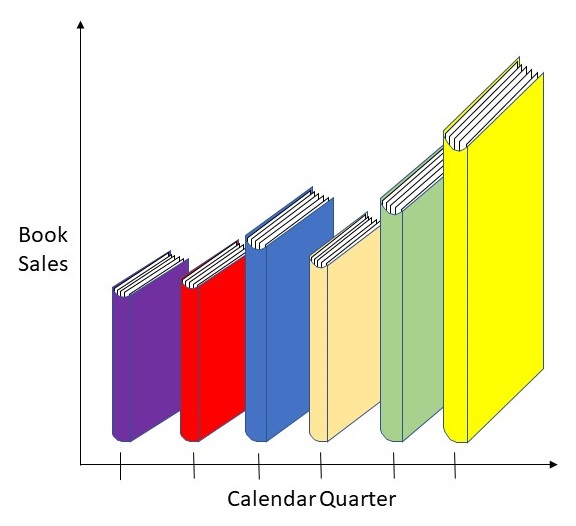Every writer wants to know the secret to publishing success. How can you get your first story published? How can you make more money from your writing?
What if somebody did a statistical analysis comparing successful writers to unsuccessful ones to find out what one group has and the other one lacks?
Someone did.
Written Word Media performed that analysis a few years ago, and their founder and Chief Operating Officer, Ferol Vernon, blogged about the results.
They polled a large group of authors and concentrated on two groups: financially successful authors earning greater than $5000 a month from book sales, and “emerging authors” earning less than $500 a month from book sales. What follows is a summary of the five main differences between the two groups.
The more successful group:
- Wrote more;
- Hired a professional book cover designer;
- Hired a professional editor;
- Used free promotions; and
- Wrote in a popular genre.
Written Word Media drew the obvious conclusion—to be a successful writer, do the things successful writers are doing.
I don’t doubt their methods or their numbers. I’d be a bit skeptical about some of the conclusions, however. Here’s why:
- In my experience with metrics, I’ve learned people tend to measure only things they can easily measure. Statisticians like quantifiable numbers, or specific questions with yes or no answers. However, success is filled with intangibles, too. For example, how do you measure the quality of a writer’s books? How about the luck of writing the right book at the right time?
- Sometimes, statisticians fall prey to mistaking causes for effects. For example, they see a high correlation between high-earning authors and the hiring of book designers and editors. They conclude that those authors are successful because of those factors. However, once an author becomes successful, that author is in a better position to hire a book designer and editor, so perhaps the success caused the hiring of experts, not the other way around.
- Last, there’s the ‘necessary but not sufficient’ argument. The list of five things may well be characteristics of successful writers, but it doesn’t necessarily follow that if you do those five things, you will be successful.
I don’t mean for my quibbles to detract from the value of the analysis, though. I’m certain if you write more, offer free promotions, and write in a popular genre, you’ll stand a greater chance of getting more book sales than if you don’t do those things.
As for paying book cover designers and editors, I’m a little less certain.
Regarding the intangibles, the unquantifiables not included in the analysis, I’d suggest you strive to write well. Write good stories readers would like to read. Write with your own, consistent, distinct style. Write from the heart.
How do you measure and graph those things? No idea. Don’t ask—
Poseidon’s Scribe

